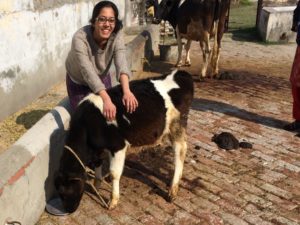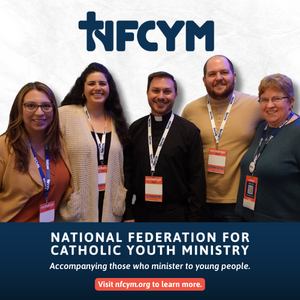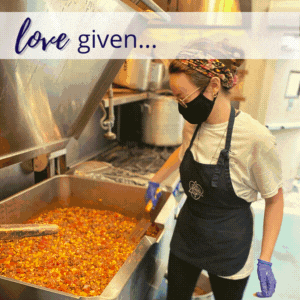By Nritya Venkat Ramani, Good Shepherd Volunteers.
Compassion. Often I have come across this word, be it in sermons, in ancient scriptures, in NGOs, or in casual banter. But what is compassion? What does it truly mean to be a compassionate individual? The guidelines for compassion are dictated by many factors such as individual personality, religion, culture, language, literature, music, arts, and many others.
Compassion has been the driving force behind my passion for social justice. Though it can be frustrating, demanding if not downright depressing, the need to do right overpowers all other emotions. I am inspired by Edmund Burke, an Irish statesman, who actively criticized the British treatment of the American colonies and supported the American Revolution. His most famous words are:
“The only thing necessary for the triumph of evil is for good men to do nothing.”
Doing nothing is the death of compassion. The pull of despondency and inaction is strong, and yet we must not give in if our societies are to remain at all compassionate. This is where my year of service as a Good Shepherd Volunteer (GSV) played a vital role.
My volunteer posting was at Euphrasian Residence, an in- house facility for girls coming through human trafficking, gang activity, juvenile prison and the foster care system. On my very first day on the site, my supervisor assured me that if I could work in Euphrasian, I could pretty much work anywhere in the world. This was not going to be easy. Having been denied a foundation of concrete values and a stable childhood, the young women took a toll on the staff with their emotional outbursts and disorderly conduct. Sometimes I wondered what I was doing here, and why I was putting myself through this. While some of my college mates were in graduate school, an internship or an actual job, here I was waking unruly teenagers up for school, getting sworn at, and breaking up fights during lunch. This was not what I imagined my Manhattan ‘high life’ to be. But isn’t that what compassion is all about? Pushing those boundaries beyond your comfort zone to go where others don’t tread? Yes, it’s uncomfortable and challenging, but I became stronger and resilient because of it. It made me appreciate the true value of compassion in our lives, especially during infancy and childhood. Compassion builds trust, something these young women struggled with. For once they trusted me; they showed a kind of raw love and fierce loyalty which was different and touching. It was why after my GSV experience, I continued to work with at- risk youth at The Door, FEGS, and most recently, The Refugee Youth Project.
Being an active advocate for interfaith dialogue and having committed to similar forums, I am convinced that service compels us to dive deep into our spirituality and explore what God expects of us. It is not the mere regurgitation of scripture or ritualistic practices that lift up our souls. It is only through the deliverance of other living beings, that we can redeem ourselves. Many have asked why a Hindu girl works so willingly in Christian- based volunteer missions. The answer is very simple. We will all be judged not by the earthly labels we impose on one and another, but by the service we have rendered to this world. That and that alone is where I draw my faith from. This sentiment was echoed in one of the GSV retreats, where each volunteer had a private spiritual session with one of the Sisters. When it was my turn, I was directed to pull out a stone from a bag filled with many colored stones. The one I picked out had the word ‘Faith’ inscribed on it. I still remember the words the Sister said to me:
“Of all the volunteers who came in, it is unusual that the only non- Christian should receive the Faith stone. You will draw your courage from your faith. And others will draw their courage from you.”
Those words couldn’t have resonated more. A few years later, I lost my only sister to cancer. It was a period of such darkness, where sometimes I wondered if there was any light at all. Supporting my parents and preserving my own inner peace became increasingly turbulent. I know that if it were not for my strong faith in service and God, my family may have never bounced back from this tragedy. By enrolling in NGO work in India as well as practicing mantra meditation and congregational worship, my family was able to heal themselves. While this may seem miraculous, the medicine is there in plain sight. There is no greater medicine than compassion, for in healing others you heal yourself.
I believe that there are different forms of compassion. Some people are compassionate because the recipient is a loved one or someone they care deeply about. Some are compassionate about certain issues because of past experiences or community spirit. And yet, some others are compassionate because they are inspired by faith and spiritual rewards. Finally, there are the ones who are compassionate because of a higher calling that is to love for love’s sake only. My year of service as a Good Shepherd Volunteer allowed me to introspect and define what compassion meant to me. During this process I met incredible people from all walks of life, most of who I still remain connected. By exploring their views and experiences, my compassion has developed profoundly. Compassion in its loftiest form calls for complete relinquishing of ego. One can only truly serve when one harbors no judgment, no fears and no desires. I hope to reach that form one day.
To learn more about service opportunities through Good Shepherd Volunteers, Please click here.






 Thousands of faith-based service opportunities can be at your fingertips with the RESPONSE. Download the latest edition today!
Thousands of faith-based service opportunities can be at your fingertips with the RESPONSE. Download the latest edition today!
